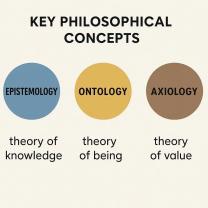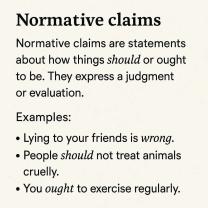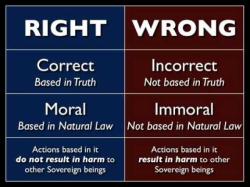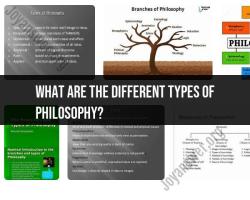Is everyone considered a "philosopher"?
The term "philosopher" is often used in both a broad and a narrow sense, which can lead to different interpretations of who can be considered a philosopher.
In the broad sense, philosophy is the pursuit of wisdom and the exploration of fundamental questions about the nature of reality, knowledge, ethics, and existence. From this perspective, anyone who engages in reflective and critical thinking about these kinds of questions could be considered a philosopher to some extent. In this sense, philosophy is a fundamental aspect of human intellectual activity, and everyone engages in philosophical thinking to some degree when pondering life's big questions.
However, in the narrow sense, a philosopher is often understood to be someone who has made a formal study of philosophy, earned academic qualifications in the field, and actively contributes to the discourse of philosophy through research, teaching, or published work. This more specialized definition of a philosopher is typically associated with individuals who have delved deeply into philosophical traditions, theories, and methodologies.
So, while everyone engages in philosophical thinking at times, not everyone is considered a professional philosopher in the narrow sense. The title of "philosopher" is usually reserved for those who have made a significant commitment to the study and practice of philosophy as a formal discipline.
It's important to recognize that there is a continuum of philosophical engagement, and individuals may move back and forth between casual philosophical pondering and more formal philosophical study and practice throughout their lives. The term "philosopher" can be flexible in its application, encompassing a broad range of people who engage with philosophical questions to varying degrees.
Are We All Philosophers? Contemplating Universal Philosophical Tendencies
The question of whether or not we are all philosophers is a complex one. On the one hand, philosophy is often seen as a highly specialized discipline that requires years of training and study. On the other hand, everyone engages in philosophical thinking at some level, whether we realize it or not.
One way to think about this question is to consider the different types of philosophy. Traditional philosophy is the academic discipline that is concerned with the major questions of human existence, such as the nature of reality, knowledge, and morality. But there is also a type of philosophy that is more common and everyday. This type of philosophy is concerned with the questions that we all face in our daily lives, such as how to live a good life, how to make the right decisions, and how to relate to others.
In this sense, we can say that we are all philosophers. We all engage in philosophical thinking, even if we don't call it that. We all ask questions about the world around us and our place in it. We all make choices about how to live our lives and how to relate to others.
The Philosophy Within Us: Considering the Potential Philosopher in Everyone
Everyone has the potential to be a philosopher. We all have the capacity for critical thinking, open-mindedness, and creativity. We all have the ability to ask questions and to seek answers.
What distinguishes a philosopher from a non-philosopher is not simply a matter of knowledge or training. It is also a matter of attitude and approach. Philosophers are committed to thinking critically about the world and to seeking truth. They are open to new ideas and perspectives, and they are willing to challenge their own assumptions.
Everyday Philosophers: Examining Common Philosophical Behaviors
We engage in philosophical thinking all the time, even if we don't realize it. For example, when we:
- Ask questions about the world around us, such as "What is the meaning of life?" or "What is the nature of reality?"
- Make choices about how to live our lives, such as what career to pursue or what kind of person to be
- Reflect on our values and beliefs, such as what is right and wrong or what is important in life
- Engage in discussions about ethical or political issues, such as abortion or gun control
All of these activities involve philosophical thinking. We are all philosophers, in our own way.
Conclusion
Whether or not we consider ourselves to be philosophers, we all engage in philosophical thinking at some level. Philosophy is not just for academics. It is for everyone who has a curiosity about the world and their place in it. By reflecting on our own thoughts and beliefs, we can all become better philosophers.












